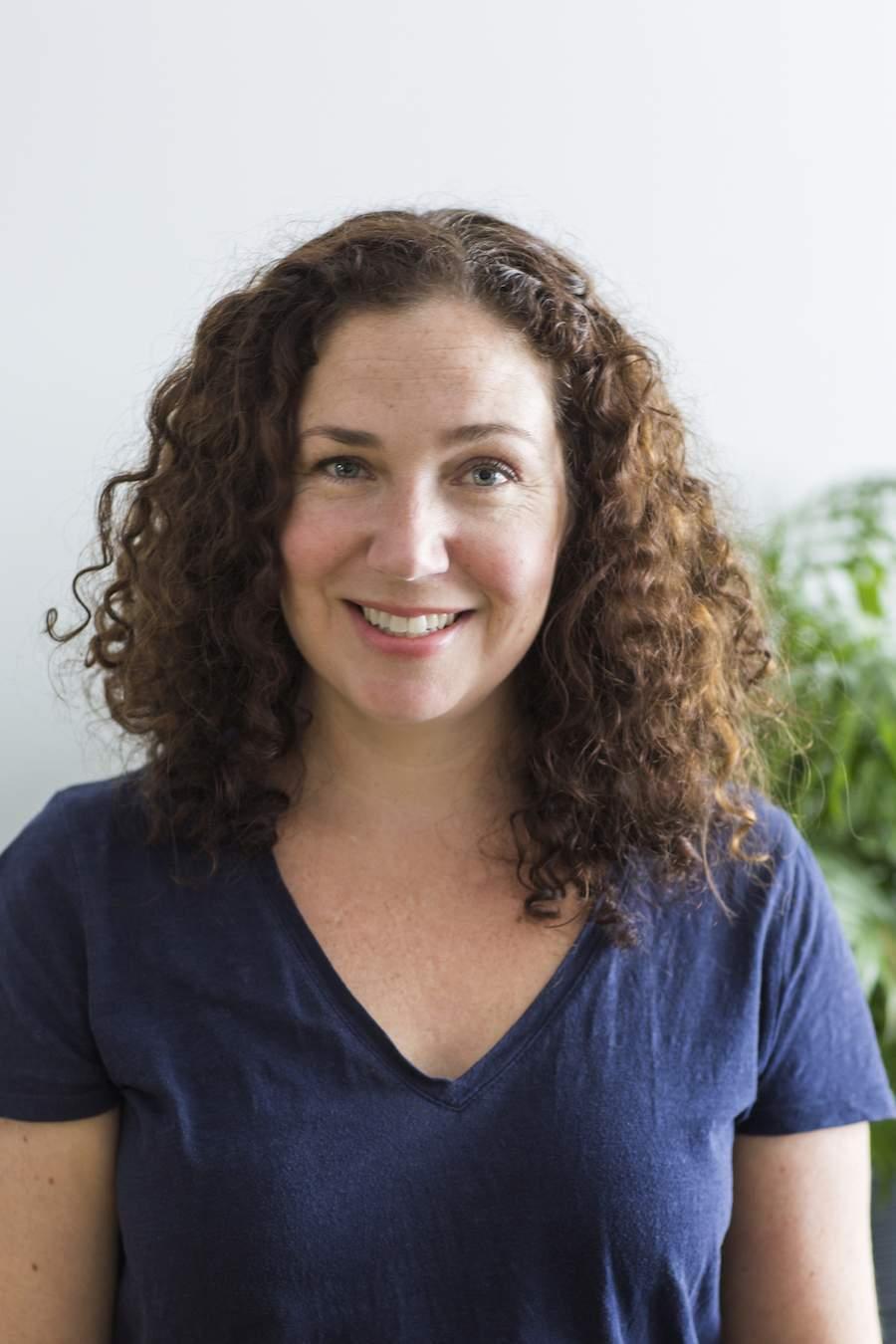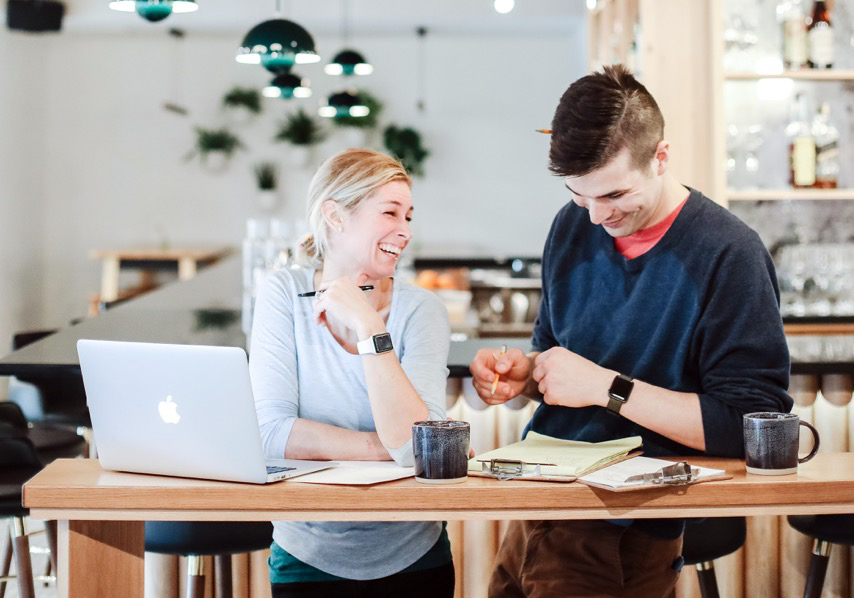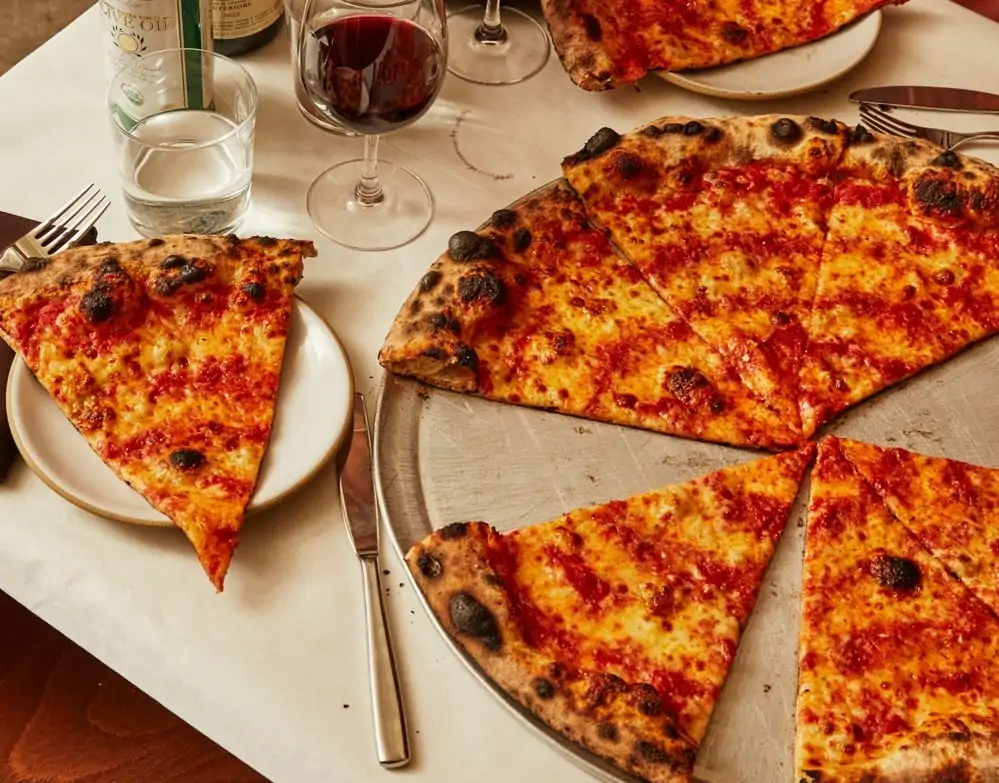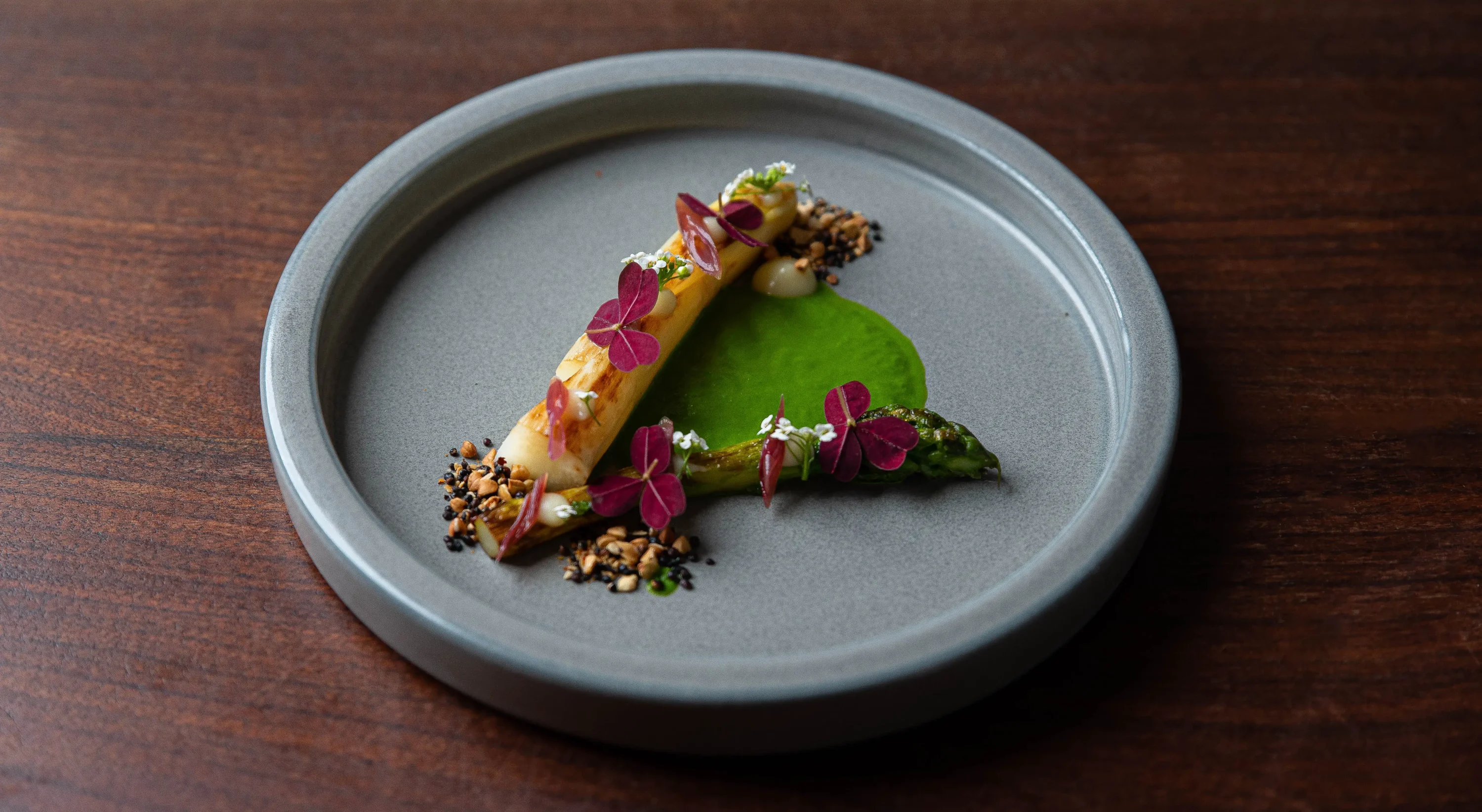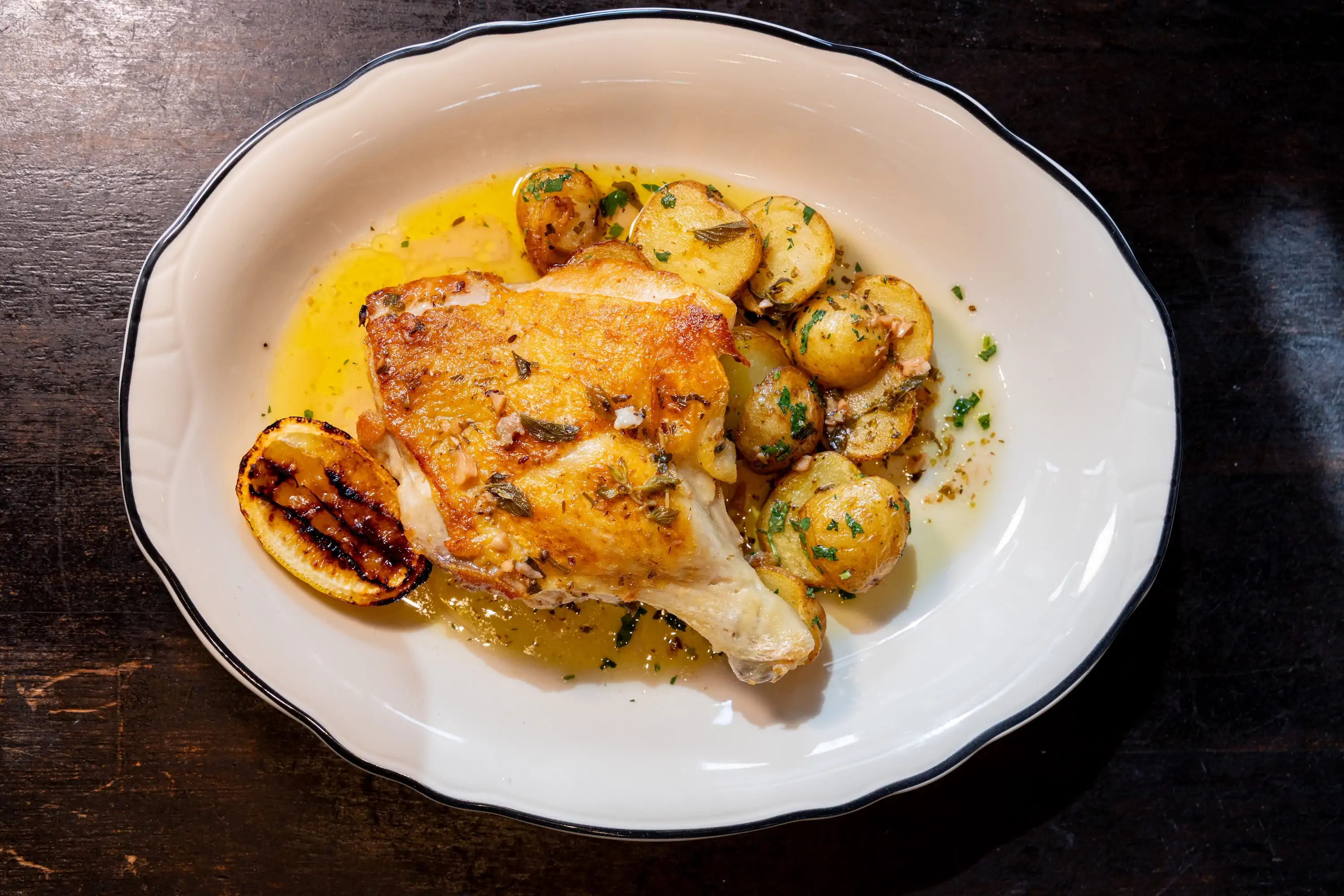When the pandemic forced acclaimed Philadelphia restaurant Spice Finch to close dine-in last March, co-owners and executive chefs Jennifer Carroll and Billy Riddle faced a dilemma: run a takeout and delivery business that stripped away all of the human interaction and hospitality they love about restaurants, or shut down altogether and lose their livelihood. Spice Finch temporarily shuttered (and remains closed for now). Like almost everyone else in the restaurant world, the chefs knew they needed to shift gears — and fast.
“From the very beginning, we were searching for ways to continue to reach out to our diners. We were really missing the bonding that is a big part of hospitality for us,” says Carroll, who is known beyond Philadelphia for her many appearances on Bravo’s Top Chef franchise over the past decade. At the same time, Riddle had what he thought was an unrelated conversation with a friend, a guitar player and teacher, about how the musician was navigating the pandemic.
It was then that Riddle was introduced to Patreon, an online platform popular with musicians and podcasters. The app and website allows fans to financially support their favorite creators by paying a monthly fee, like a subscription. These Patreon members typically gain access to content and perks just for their community. When their guitarist friend suggested this model might also work for chefs, it sparked Carroll and Riddle’s pandemic pivot — while other restaurants turned to frozen foods, outdoor dining, and takeout, Carroll and Riddle brought their business totally online.
Creating an online community

Publishing recipes and teaching cooking via video is certainly not new for chefs. But in the past, it required the permission of some gatekeeper. You needed to have an editor at a publisher green-light your cookbook or a Food Network executive commission your cooking show. Tools like YouTube and social media channels have made it easy to offer this kind of content to an audience, and Patreon takes it a step further by making it easy for that audience to pay chefs directly for what they offer.
Via Patreon, Carroll began publishing exclusive recipes, teaching virtual cooking classes and videos, and selling discounted merchandise. She also engages with her members there via a private online discussion group. Memberships range in price from $3 to $35 a month.
To date, Carroll has a modest 51 members, but creating the Patreon program has spawned other avenues of income. Her online cooking classes are discounted or free to members (depending on membership level), but the general public can purchase a full price ticket for these once-a-month classes at $35 each. Patreon has also become an important tool for promoting her highest-end offering: private virtual group cooking classes that range from $2,000 for $8,000 per session.
Carroll and Riddle aren’t the only creatives who have gotten into this business model during the pandemic. According to Patreon data, more than 30,000 people working in a variety of small businesses launched new programs on the platform during March of 2020 alone; the pandemic represents the biggest growth spurt in Patreon’s history. And some are chefs: Carroll’s fellow Top Chef alum Melissa King is also on the platform with 237 patrons, as well as Jenn de la Vega, the chef behind the Brooklyn-based catering company Randwiches. But as these chefs have learned over the past year, there’s more to getting a digital membership program up and running than your cellphone’s camera and few mouse clicks.
Becoming Swiss Army knives

“You can really tell who is using a good microphone and who isn’t,” says Carroll, who has reinvested most of her new venture’s revenue back into the business, buying her own equipment and setting up a recording studio in the new 2,500-square-foot live/work space she shares with Riddle. They moved in at the beginning of the pandemic when the vision for their Patreon program was taking shape. The space has two kitchens: one for the cameras and one just for them.
Carroll says her background as a reality TV regular has come in handy in the process of ramping up the virtual side of their business, imprinting on her the importance of good lighting and sound. She learned a lot over the years watching the professionals set up audio and lighting on the Top Chef set.
Another secret weapon: Spice Finch partner and fiancée Billy Riddle, an acclaimed chef in his own right. “I don’t think either of us could pull this off by ourselves. We are doing everything together,” says Riddle. He takes on the behind-the-scenes roles, while Carroll spends more time in front of the camera.
“We’ve had to adapt to a lot of roles we never thought we’d be playing,” says Carroll. “But in many ways, it’s exactly like opening and growing a restaurant. You have to multitask. You have to become a Swiss Army knife.”
Carroll freely acknowledges that with a dedicated partner and her background in TV, she’s working with resources not every chef has. Still, she thinks most chefs could add some form of online membership, cooking classes, or community to their work during this time of social distancing. “We overlook this, but as chefs we are all creators. We all create content,” she says.
Putting that work that chefs are already doing — from recipes to cooking classes to behind-the-scenes restaurant life — on a platform like Patreon could just take income opportunities one step further. But, Carroll warns, consistency is key: “I think to get a following, you need to be dedicated. You don’t gain an audience doing an online cooking class one time,” she says.
When the virtual world joins the real world
Looking into the post-pandemic future, Carroll and Riddle fully intend to continue growing the digital part of their business, even when Spice Finch reopens later this year. They’ve invested too much in building it up to let it fall to the wayside. Plus, they love the community they’ve built on Patreon. In a way, they are grateful to have been pushed into launching this project, which has drawn fans from across the country and Canada into their online world.
“There’s been a lot of positives that have come out of learning to use the virtual platforms. It’s given me the ability to bond with people online instead of in person,” says Carroll. “It’s been an amazing opportunity.”
“The virtual world isn’t going anywhere, and after all this we want to merge both worlds,” says Riddle.
